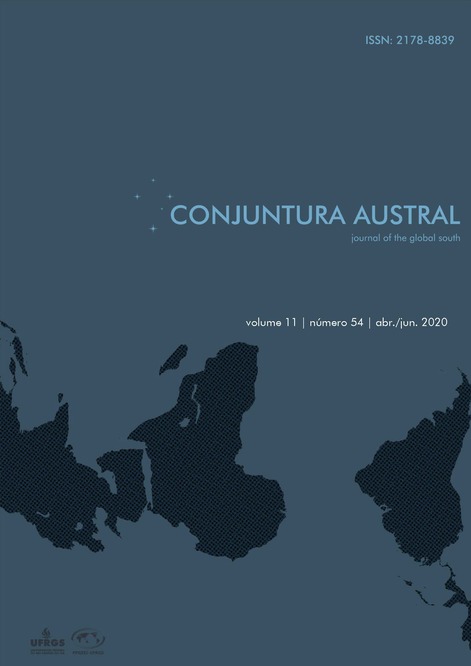Science, technology and innovation in Brazil’s international agenda from 1990 to 2010
DOI:
https://doi.org/10.22456/2178-8839.100867Keywords:
Brazilian Foreign Policy, Science, Technology and Innovation, Diplomacy.Abstract
This paper aims to understand the presence of Science, Technology and Innovation’s (CTI) theme in the international agenda of Brazil in the period from 1990 to 2010 in the light of the guidelines of Brazilian Foreign Policy and the Policies of Science, Technology and Innovation (PCTIs) of the governments covered. The working hypothesis is that in accordance with the different political-economic guidelines of the governments under analysis there is a different approach to STI in Brazil's international agenda. The research results demonstrated that in the light of the STIPs, the approach to STI in Brazil's international agenda has continued even in governments located in different political spectrum. Nevertheless, in the light of the foreign policy guidelines variations are observed between the governments of the 1990s and the governments of the 2000s. For the 2000s, it is observed a higher Brazilian international activity in the field of STI was perceived as changes in the international profile of Brazil (with greater proactivity and diversification of its activities) have occurred as results of a new political-economic orientation in the 2000s. Although it is not possible to identify a prioritization of the STI theme when compared to other agendas on the country's international agenda, Brazil, indeed, has changed its international performance in the field of CTI in the 2000s.
Downloads
Downloads
Published
How to Cite
Issue
Section
License
Authors who publish with this journal agree to the following terms:
a. Authors retain the copyright and grant the journal the right to first publication, with the work simultaneously licensed under the Creative Commons Attribution-Non Commercial-ShareAlike 4.0 International License, which allows its use, distribution and reproduction in any medium, as well as its transformation and creations from it, as long as the original author and source are credited. Also, the material cannot be used for commercial purposes, and if it is transformed, or used as a basis for other creations, these must be distributed under the same license as the original.
b. Authors are able to enter into separate, additional contractual arrangements for the non-exclusive distribution of the journal's published version of the work (e.g., post it to an institutional repository or publish it in a book), with an acknowledgment of its initial publication in this journal.
c. Authors are allowed to deposit, in the repositories accepted by Conjuntura Austral, the preprint version of the manuscripts submitted to the journal prior to and during the submission process, as it can lead to productive exchanges, as well as earlier and greater citation of published work (See The Effect of Open Access)
d. Authors are permitted and encouraged to publish and distribute online (in institutional and /or thematic repositories, on their personal pages, etc.) the postprint version of the manuscripts (accepted and published), without an embargo period.
e. Conjuntura Austral: Journal of the Global South, imbued with the spirit of ensuring the protection of regional academic and scientific production in Open Access, is a signatory to the Mexico Declaration on the use of the Creative Commons BY-NC-SA license to guarantee the protection of academic and scientific production in open access.
Accepted 2020-06-07
Published 2020-06-24








